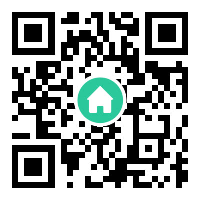The Rise of Telegram Anonymous Accounts
Telegram anonymous accounts have become a cornerstone of modern digital communication, offering users unparalleled privacy in an era of heightened surveillance. Unlike mainstream platforms that mandate personal information for account creation, Telegram allows individuals to operate under pseudonyms or entirely anonymous profiles. This feature has made the app a haven for activists, journalists, and everyday users seeking to protect their identities. However, the proliferation of Telegram anonymous accounts also raises critical questions about accountability, security, and ethical use. As debates around online anonymity intensify, understanding the implications of these accounts is essential.
Privacy vs. Accountability: A Double-Edged Sword
The primary appeal of Telegram anonymous accounts lies in their ability to shield users from unwarranted scrutiny. In countries with oppressive regimes, activists rely on these accounts to organize protests or share censored news without fear of retaliation. Similarly, whistleblowers use Telegram’s encrypted channels to leak sensitive information securely. Yet, this very anonymity can be exploited. Cybercriminals, trolls, and propagandists often hide behind untraceable identities to spread misinformation, coordinate scams, or harass individuals. The lack of verifiable user data makes it challenging for authorities to hold malicious actors accountable, creating a paradox where privacy tools enable both empowerment and harm.
Technical Mechanisms Behind Anonymity
Telegram’s architecture plays a pivotal role in facilitating anonymous accounts. The platform does not require phone number verification for basic usage, allowing users to sign up with disposable numbers or virtual SIM cards. Additionally, features like “Secret Chats” employ end-to-end encryption, ensuring that messages self-destruct and leave no digital footprint. For heightened anonymity, third-party bots and services can generate temporary accounts linked to proxy servers, further obfuscating a user’s location and identity. While these tools enhance privacy, they also complicate efforts to trace illicit activities, highlighting the tension between technological innovation and regulatory oversight.

Ethical and Legal Challenges
The ethical implications of Telegram anonymous accounts are hotly debated. Advocates argue that anonymity is a fundamental human right, especially in contexts where free speech is suppressed. Conversely, critics emphasize the platform’s role in enabling cybercrime, hate speech, and terrorist recruitment. Governments worldwide have pressured Telegram to implement stricter identity checks, but the company has largely resisted, citing its commitment to user privacy. Legal frameworks struggle to keep pace: while some jurisdictions mandate data retention laws, others lack the infrastructure to enforce them. This regulatory gray area perpetuates a cycle where abuse thrives alongside legitimate use.
Striking a Balance: Solutions for the Future
Addressing the risks associated with Telegram anonymous accounts requires a multifaceted approach. Technologically, advancements in AI-driven content moderation could help flag harmful behavior without compromising user anonymity. For instance, pattern recognition algorithms might detect scam messages or hate speech, allowing moderators to intervene proactively. Legally, international cooperation could standardize accountability measures, such as requiring platforms to disclose user data in response to court orders—while preserving anonymity for low-risk users. Education is equally critical: teaching digital literacy skills can empower users to navigate anonymity responsibly, distinguishing between legitimate privacy needs and malicious intent.
Conclusion: Navigating the Anonymity Paradox
Telegram anonymous accounts embody the complexities of digital freedom in the 21st century. They provide a lifeline for vulnerable communities but also serve as tools for exploitation. As society grapples with these contradictions, the path forward lies in balancing innovation with responsibility. By embracing transparent policies, investing in ethical technology, and fostering global dialogue, stakeholders can ensure that anonymity remains a force for good—without sacrificing security or accountability. In an increasingly interconnected world, the future of Telegram anonymous accounts will shape not just online communication, but the very fabric of democratic discourse.








